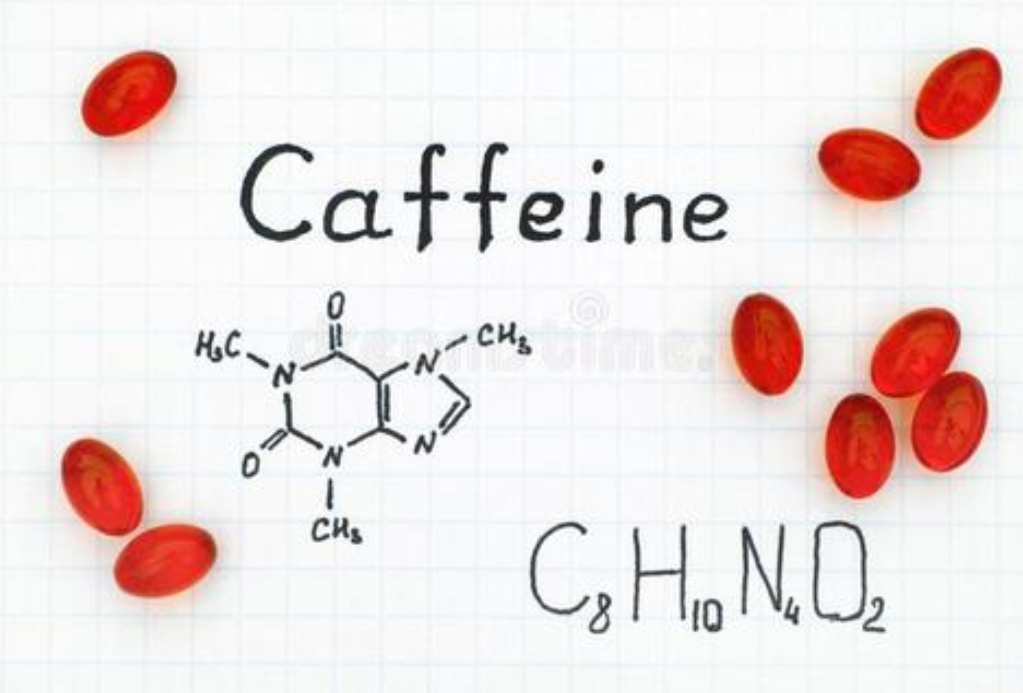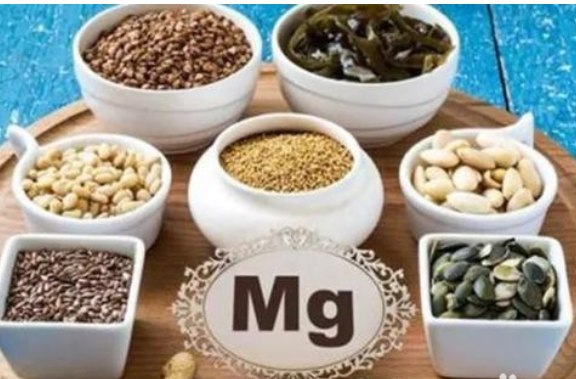









发布日期:2020-10-28
制定者:
出处:
 立即收藏
立即收藏
Previous research has shown that CNS stimulants such as methylphenidate or cocaine precipitate or worsen tics , although more recent research has failed to establish a direct link between the use of psychostimulants and an increase in the causation of tics. Another CNS stimulant, caffeine, hasalsobeen suggested to influencethe expression of tics in TS. Caffeine is a competitive antagonist at adenosine receptors, and has been shown to enhance the effects of dopamine agonists. The dopaminergic system may therefore modulate or facilitate the expression of tics, as demonstrated by dopamine mimetic receptor blockers (such as haloperidol), which has been shown to have a suppressant action on tics . Furthermore, tics may worsen due to the further stimulation of an already overactive dopaminergic system by caffeinated products,Schaefer, Chow, Louis andRobakis recently found,when conducting a retrospective chart review of outpatients over age 21, that one third of the patients with TS identified re-emergence of tics followingthe intake of alcohol and caffeine.
The case of two cousins with tic-related symptoms who,over a 3-year period of being observed and having tics recorded, were also reported to display caffeine-precipitated tics.
Refined sugars
Refined sugar is a processed food and is commonly found as a combination of glucose and fructose, known as sucrose. It is often used by food manufacturers to sweeten food, but has been shown to cause a rapid rise in blood sugar that could increase an individual’s risk of mood swings, diabetes, cancer and obesity.Refined sugar may also exacerbate some psychological disorders. For example, refined sugar has been found to cause more behavioural problems in ADHD, and TS respondents have reported a worsening of their tics after the consumption of refined white sugar. Researchers proposed that, in the case of individuals with ADHD, the increase of dopamine (caused by sugar intake)might lead to a reduction in the number of D2 receptors and/or a decrease in extracellular dopamine itself. This couldpotentially lead to desensitization of the dopamine-signalling axis, meaning it is possible that children with ADHD may then ingest more sugar in an effort to correct the dopamine-deficient state. Therefore,children with TS, a population also identified as having dysfunction of the dopamine system, may also show a tendency to consume high sugar foods, which may in turn exacerbate tics.
Magnesium deficiency
Magnesium is a mineral that has a crucial role in how the body regulates and functions, and it is also essential to the biochemical systems that contribute to the body’s health maintenance. The classic symptoms of mineral deficiency canoften be linked to their physiological role of controlling healthy levels of calcium and potassium in the body. A deficit in Magnesium can result in seizures, anxiety, muscle spasms and tics, migraine headaches, depression and chronic fatigue. All of these symptoms are frequently observed in a range of neuropsychiatric conditions (such as TS). However,the potential contribution of magnesium deficiency is currently unclear.Diet and Nutrition in TS Grimaldi (2002) reported that children with TS have a magnesium deficiency, which has been attributed to neuromuscular hyperexcitability, as well as a rise in convulsions, choreaand athetoid movements. Furthermore, a magnesium deficiency has been related to an increased release of dopamine, more defensive behaviour and greater modulation of serotonin receptors. It can also lead to other symptoms, including migraine, which is found to be more frequent among patients with TS. In other psychological disorders (such asASD), oral supplementation of magnesium and vitamin B havebeen shown to significantly improvetheability to interact in social situations, and to increase communication and intellectual abilities.
Research is needed to investigate the potential of using magnesium and vitamin B6 as a method of treatment in TS, for the reduction of symptoms. If successful, this could help reduce tics and the need for pharmacological interventions (including neurolepticdrugs).Importantly, magnesium and B6 can both be administered via food intake and areassociated with few side effects(Garcia-Lopez, et al., 2009).
Iron deficiency
Iron is critical for producing haemoglobin, a protein that helps red blood cells deliver oxygen throughout the body.An iron deficiency is one of the most commonly Diet and Nutrition in TS reported nutritional deficiencies found in the general public;it results in a lack of oxygen getting to tissues and organs,which can lead to anaemia.Iron deficiency, with or without anaemia, can also impair emotions and cognition, and in other psychological disorders, has been associated with developmental delay in infants, mood changes and lack of concentration in children.Low ferritin and serum iron levels have frequently been found in both children and adults with TS. It has been suggested that low levels of iron may contribute to hypoplasia of the caudate putamen, increasing the risk for both development and severity of tics. In addition, the inability to control tics may be a result of smaller cortical volumes, also linked to low levels of iron.Therefore, given the biological links showing low levels of iron may be symptomatic of children with tics ,the relationship between iron supplements and symptoms of TS may be warranted.
Glutenin tolerance
Anecdotal reports have suggested that children with TS have abnormal reactions to gluten, and the chemical manipulation of this protein hasbeen suggested toresult in a substance that exacerbates tics. It can also contribute to difficulties in the breakdown of a protein found in dairy products, called case in Celiac disease, a common digestive condition caused by an abnormal immune reaction to gluten, is more likely to occur in association with other psychological disorders such asADHD, Autism,Learning and tic disorders.Despite a family history for celiac disease, she failed to show symptoms of the disease herself, but instead met the criteria for Non-Celiac Gluten Sensitivity. After 1-week of being placed on a gluten-free diet (GFD) her tics were reported to diminish, and within a few months the tics appeared to completely disappear.However, to date, no empirical studies have directly addressed the use of a gluten diet inindividuals with TS.
饮食营养与抽动症之间的关系
咖啡因

虽然目前的研究未能证实食用精神兴奋类食物会诱发抽搐,但之前有些研究已经表明,像哌甲酯或可卡因这样的中枢神经兴奋剂会诱发或加重抽搐症状,比如咖啡因,也被证实对抽动症有一定的影响。咖啡因对体内的腺苷受体来说有一定的对抗作用,并且能增强多巴胺的活性,同时多巴胺能系统对于抽动症具有一定的促进作用。摄入过量的咖啡因产品会进一步刺激过度活跃的多巴胺能系统,因此抽动症状可能会恶化。最近美国有项研究表明,在对21岁以上的抽动症病人进行筛查时发现,有三分之一的抽动症患者在摄入酒精和咖啡因后,他们的抽动症状再次出现。据报道,在为期3年的有关抽动症患者的观察和记录中,两对患有抽动症的表兄妹在摄入咖啡因后,其抽动症状加剧。
精制糖

精制糖是一种加工食品,通常由果糖和葡萄糖组成,一般称之为蔗糖。为增加甜味,食物中会添加大量的蔗糖,但研究表明摄入大量的蔗糖会导致人体血糖迅速上升,进而增加个人情绪波动和患糖尿病、癌症和肥胖症等风险。精制糖还会使精神障碍性疾病加重。例如,精制糖会加重多动症患者的多动行为。甚至有些抽动症患者表示,在摄入精制糖后,他们的抽动症状更加严重。研究人员表示,对于患有多动症的群体,体内的多巴胺的增加(由糖的摄入引起)可能导致D2受体数量或胞外多巴胺数量的减少。这意味着人体为了使体内的多巴胺保持均衡,会发出信号,使多动症患者摄入更多的糖。因此,抽动症儿童,也被认为是患有多巴胺系统功能障碍,表现为,喜欢食用高糖食物,最终会加剧其病情。
镁缺失

镁是一种矿物质,对人体的调节和功能方面起着至关重要的作用,而且对于维持人体健康的是必不可少的。矿物质缺乏的典型症状通常与其控制人体内钙和钾水平的生理作用有关。镁缺失会导致癫痫发作、焦虑、肌肉痉挛和抽搐、偏头痛、抑郁和慢性疲劳等问题。而这些都是抽动症患者的常见症状。2002年度的膳食与营养报告指出,抽动症患儿体内普遍存镁缺乏的情况,这进一步导致神经肌肉过度兴奋、抽搐、舞蹈症和无神运动频率的增加。此外,镁缺乏还会增加人体内多巴胺的释放,增强防御行为,同时使血清素受体的调节加大。除此之外,它还会导致其他症状,比如偏头痛,这一症状在抽动症患者中尤为常见。在其他心理疾病(如自闭症)的治疗中,口服镁补剂和维生素B已被证明可以显著改善患者的社交能力,并增加其沟通力和智力。但是对于镁补剂和维生素B6是否可以有效改善抽动症患者的病情,我们还需要做更多研究证实。如果镁补剂和维生素B6真的能够有效缓解抽动症症状的话,这将有助于减少使用药物干预的需要(包括抗精神病药物)。最重要的是,镁和维生素B6都可以通过食物摄入,几乎没有什么副作用。
铁缺失

铁是血红蛋白的组成部分,而血红蛋白有助于体内红细胞向全身输送氧气。铁缺乏在抽动症患者中尤为常见,铁缺失会导致以下几个问题:
铁缺失会导致人体组织和器官缺氧,进而导致贫血。除了贫血,缺铁还会对人们的情绪和认知产生一定的影响,在其他心理疾病中,缺铁会导致婴儿发育迟缓、情绪变化剧烈和注意力不集中等问题,在抽动症患者(成人和儿童)体内中,铁蛋白和血清铁水平都比较低。此外,大脑皮质体积的缩小会导致抽动症状无法自控,但有研究表明,铁缺失对此也“难逃干系”。因此,鉴于铁缺失与抽动症之间的关系,抽动症患者可以适当地补充铁元素。
麦谷蛋白的耐受性

有实例表明,抽动症儿童对谷蛋白具有不耐受反应,进而会导致抽搐症状的加重。这种谷蛋白也会导致饮食中的蛋白质很难分解,这种情况我们称之为乳糜泻,这是一种由谷蛋白过敏引起的自身免疫系统疾病, 这种疾病会导致神经性障碍,比如多动症、自闭症、学习障碍症和抽动症等。
点击查看原文
